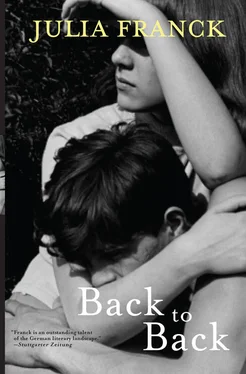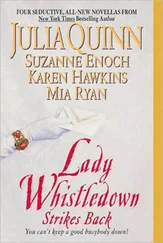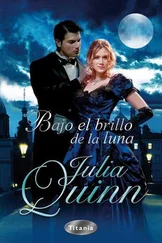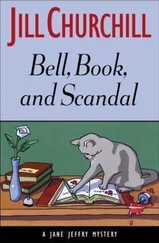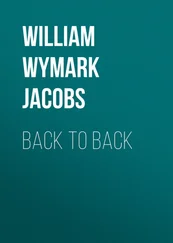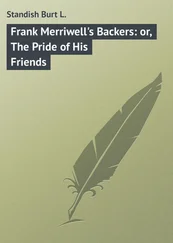Julia Franck - Back to Back
Здесь есть возможность читать онлайн «Julia Franck - Back to Back» весь текст электронной книги совершенно бесплатно (целиком полную версию без сокращений). В некоторых случаях можно слушать аудио, скачать через торрент в формате fb2 и присутствует краткое содержание. Год выпуска: 2013, Издательство: Grove Press, Жанр: Современная проза, на английском языке. Описание произведения, (предисловие) а так же отзывы посетителей доступны на портале библиотеки ЛибКат.
- Название:Back to Back
- Автор:
- Издательство:Grove Press
- Жанр:
- Год:2013
- ISBN:нет данных
- Рейтинг книги:3 / 5. Голосов: 1
-
Избранное:Добавить в избранное
- Отзывы:
-
Ваша оценка:
- 60
- 1
- 2
- 3
- 4
- 5
Back to Back: краткое содержание, описание и аннотация
Предлагаем к чтению аннотацию, описание, краткое содержание или предисловие (зависит от того, что написал сам автор книги «Back to Back»). Если вы не нашли необходимую информацию о книге — напишите в комментариях, мы постараемся отыскать её.
, was an international phenomenon, selling 850,000 copies in Germany alone and being published in thirty-five countries. Her newest work,
echoes the themes of
, telling a moving personal story set against the tragedies of twentieth-century Germany.
Back to Back Heartbreaking and shocking,
is a dark fairytale of East Germany, the story of a single family tragedy that reflects the greater tragedies of totalitarianism.
Back to Back — читать онлайн бесплатно полную книгу (весь текст) целиком
Ниже представлен текст книги, разбитый по страницам. Система сохранения места последней прочитанной страницы, позволяет с удобством читать онлайн бесплатно книгу «Back to Back», без необходимости каждый раз заново искать на чём Вы остановились. Поставьте закладку, и сможете в любой момент перейти на страницу, на которой закончили чтение.
Интервал:
Закладка:
What a silly question. Käthe ran her fingers through her short hair and shook her head in surprise. The peach stones of her necklace rode up to her throat. Her full lips smacked slightly as she spoke. Go upstairs and get yourself a cup. It sounded as if she didn’t like the news; she went over to the set and turned the tuning button until she found an animated discussion on the admission of African states to the United Nations.
We’re coming closer to peace, murmured Käthe, nodding with satisfaction. At least they’re rid of their masters. It’s about time the world recovered. She knocked on the stone, not waiting for any answer. Käthe very often made some pronouncement without wanting an answer, and if anyone did answer her she could be very annoyed.
Thomas looked around the studio; he didn’t want to go up to the house naked and look for a cup in the kitchen. He saw a glass with a little water in it beside the radio on the bookcase at the back of the studio. Can I use that glass?
Käthe didn’t answer; she obviously hadn’t heard him, or didn’t want to hear him. She was bending down looking for something in her box of tools.
Thomas went over to the radio, where his eye fell on Käthe’s purse again. He picked up the glass; there was a thin film of stone dust floating on the surface of the water. He tipped the water out on the huge cacti growing in the window, and poured some tea from Käthe’s big teapot.
Give me a hand, she said, pressing her hammer and chisel into the naked boy’s hands. Knock that bit down there away, the whole corner, or I can’t work when the stone here is still in the block. Get at least that corner off.
Thomas grasped the hammer higher up the handle and knocked the corner off the block. It was not the first time he had helped her. The stonemason had gone to the Baltic on holiday for two weeks. He had applied for a holiday two years earlier, a summer holiday. Now he had been given one in November, but his wife and children would have to stay behind in Berlin. Käthe shook her head: all this bureaucracy. The stonemason wouldn’t be back to do the preliminary work on shaping the stone until next week. Out of sheer impatience, because the sketches and small model studies in wax, as well as a larger plaster model, had been done weeks ago and were only waiting to be transferred to the stone, Käthe had already begun at the top of the sculpture and was turning to the fine structures there. Now she wanted to work on the lower part. What was a young man here for, after all? She wanted Thomas to knock the other corner off the block as well, working along the line she had drawn in wax crayon. She nodded with satisfaction as she watched him working. He felt warm; that was good.
That’s enough, said Käthe suddenly. You’re taking too much off it there, I’ll need that bit later to shape the knee. Leave it alone for now. She pushed Thomas aside with her shoulder and hip, like an animal nudging another with its flank, so that he stumbled over the wooden plank on which the stone stood. Mind what you’re doing. Käthe examined the stone again with a critical eye, put the rubber-framed goggles that she had pushed up into her hair back on her nose, bent down and began knocking a piece off the lower part of the sandstone. Then, still bent over, she turned her head and looked attentively at Thomas. You’re standing around like a bad penny, get back into your pose and we’ll carry on.
Thomas raised his arm until he thought it was at the correct angle. He knew that Käthe seldom began a conversation with her models; she needed all her attention for what was to come out of the stone. Thomas thought of his chemistry work. The chemistry teacher was glad to have a student like Thomas in his class. Recently he had asked Thomas to stand in for him and teach the class when he had been summoned to a meeting with the headmaster. Thomas felt diffident; he began by explaining the part played by oxygen in organic combinations with hydrogen and carbon, while his fellow students listened with vacant expressions, and he couldn’t be sure whether they knew what he was talking about. And there were indeed more exciting things in chemistry, Thomas thought so himself, so in mid-sentence he ventured on a change of subject and tried to explain electronegativity according to Allred and Rochow, as his American Uncle Paul had described it last time he visited early in the year. The class preserved their vacant expressions; they obviously hadn’t noticed that he was now talking about something different. Thomas wrote the formula on the board and said that you had to imagine electronegativity in proportion to the electrostatic power of attraction; he drew a diagram of the inner and outer electrons and was about to describe the power of attraction exerted by the nuclear charge on the bonding electrons, but he very soon realised that no one was imagining anything at all, indeed no one in the room could follow him, so he interrupted himself. Something stung his cheek. With one hand he searched his trouser pocket, found his elastic band and a green sweet wrapping with a strong smell of eucalyptus. He made a small missile and shot it at his best friend Michael’s forehead. Hands reached into pockets and school bags. The boys got out their catapults and began shooting at each other.
When the chemistry teacher appeared in the doorway with a stack of books under his arm he saw that some of the students were not in their places, they were laughing, shouting and fooling around. He told Thomas, in a loud, stern voice, that he had abused his trust. No sooner had he said that, reaching for the cane he liked to use at such moments, than an expression of the utmost misery spread over his face.
Open your books at page one hundred and three. There was total silence around him, no one whispered a word, and even after the bell went they still sat there listening, but the teacher said nothing until, at the end of break, he said the boys could pack up their things. When there was a chemistry test in class a week later, he gave Thomas seven extra questions as well as the six that the whole class had to answer. The idea was not to keep Thomas sitting twice as long as the others over the test but to show that he was able to solve more difficult problems and do twice as much as everyone else. You want to study at university, don’t you, Thomas? The teacher knew he could ensure that his best student failed the school-leaving exam. He didn’t need an extra-difficult test for that, he could interrogate him about politics, test his knowledge and his conscience there, call his attitude into question. But he was giving him a chance to show what he could do. Thomas had not managed to answer the last of the additional questions within the hour allowed. He hadn’t been quick enough. For the first time in five years he did not get a One. The teacher was wearing his miserable expression again as he gave back the tests and stopped beside Thomas’s desk. It was hard for him to see Thomas fail, it obviously troubled the teacher, he ran the knuckles of his clenched fist over the desk, there was strength in it, the will for pain as if the boy’s failure physically hurt him. Thomas lowered his eyes; it was awkward, indeed impossible, for him to meet that gaze. It would not be the only test in class this last winter before the school-leaving exam. But the teacher had made it clear that Thomas depended on his goodwill if he expected to get marks corresponding to his achievements. Then the final exams could take whatever turn they liked; nothing would come of Thomas’s plans to study at university if the teacher didn’t want him to. Nothing would presumably come of plans for university studies anyway, since they had decided at the Ministry of Education to give the children of the working classes preferential treatment, in the cause of a more just society. Disobedience was a quality that Thomas would do well to discard. The collectivisation of agriculture had been completed, there would be a pressing need for young men like Thomas to work on agricultural production, he could work with farm animals, for instance, then he and those like him would not be forming elite groups, and university studies would be left to the other sort. Thomas wondered why art didn’t count as work. Wasn’t he the son of a worker?
Читать дальшеИнтервал:
Закладка:
Похожие книги на «Back to Back»
Представляем Вашему вниманию похожие книги на «Back to Back» списком для выбора. Мы отобрали схожую по названию и смыслу литературу в надежде предоставить читателям больше вариантов отыскать новые, интересные, ещё непрочитанные произведения.
Обсуждение, отзывы о книге «Back to Back» и просто собственные мнения читателей. Оставьте ваши комментарии, напишите, что Вы думаете о произведении, его смысле или главных героях. Укажите что конкретно понравилось, а что нет, и почему Вы так считаете.
